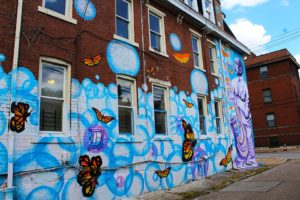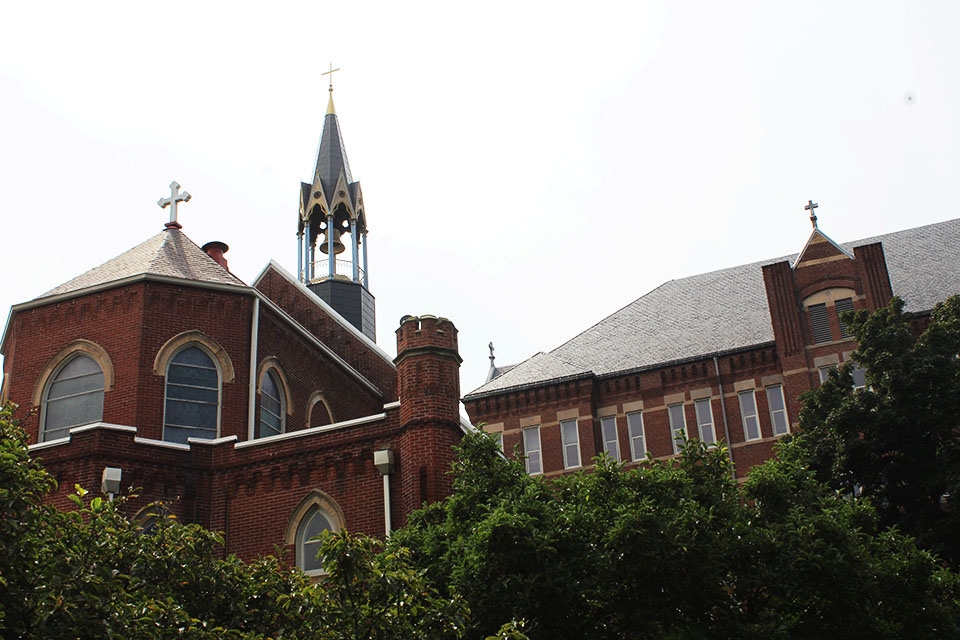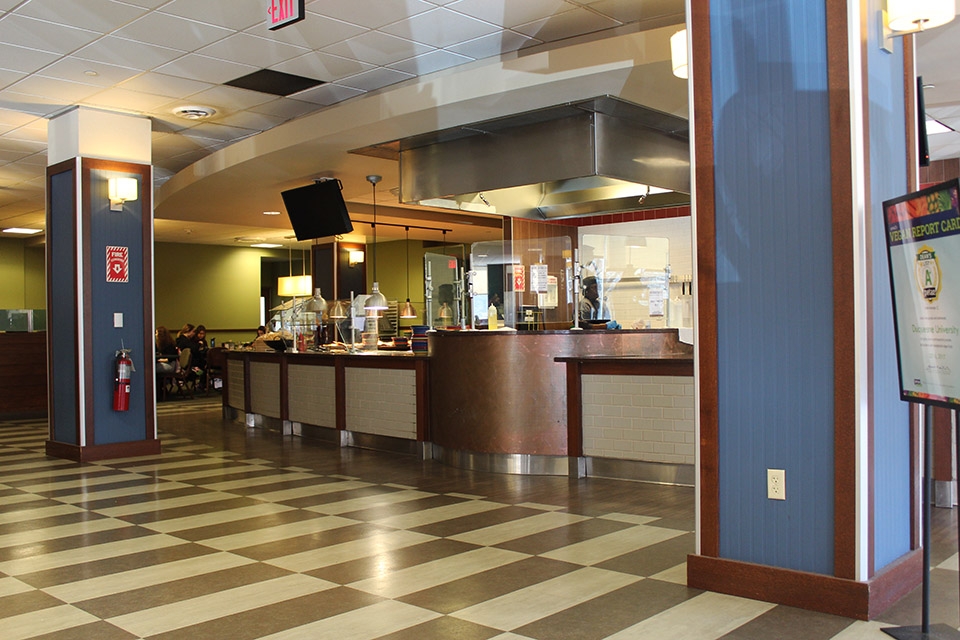
A photo of a mural painted in the Uptown neighborhood. Uptown is slated to be the site of numerous improvements with the EcoInnovation project.

A photo of a mural painted in the Uptown neighborhood. Uptown is slated to be the site of numerous improvements with the EcoInnovation project.
Hallie Lauer | Layout Editor
In the fall of 2015, Pittsburgh became the first in the country to introduce a plan to become a more efficient and safer city. The specific communities targeted for renovation are Uptown and West Oakland.
Titled the EcoInnovation District, the city’s plans hope for the neighborhoods to become, “an area dedicated to sustainability, innovative development practices and inclusive job growth.”
The overarching goal is to make Uptown safer and to bring in more business to create a more economically thriving community, in a study done by the University of Washington in 2016 it was shown that cleaner areas with more businesses tend to have lower crime rates.
According to the reports done by Pittsburgh Police it has been shown that while crime rates overall in Pittsburgh have been steadily declining, with a 12 percent drop in violent crimes and a 17 percent drop in murders in the last year, Uptown and West Oakland are still a crime hot-spot.
The plans to reduce the crime in this area include ways to remap streets to be safer for pedestrians by adding more crosswalks and a biking lane; creating greener infrastructures that can help collect rainwater and prevent flooding and using the vacant land to better the community by planting community gardens and creating safe playgrounds for children.
Another part of these plans is to help attract investment to the area by revitalizing this community. The investments could help Uptown since currently 23 percent of the community is vacant, while another 12 percent is surface parking, according to the study completed for the EcoInnovation project and according to the University of Washington study, “cleaning up vacant lots was one of the most effective treatment strategies [for crime].
The program, according to its website, has collected 700 surveys of people who live in and around Uptown and West Oakland to see citizens’ suggestions on how to better their community, and these suggestions are being taken into account as the program plans for the future.
Not only is this program working closely with the members of the community, they are also working with other community outreach programs, including ones here at Duquesne.
“At the request of the City of Pittsburgh’s Department of City Planning, Duquesne is now the convener of the newly formed Uptown Task Force, which includes representatives of various organizations that will help to drive the implementation of the EcoInnovation District Plan,” said Mary Ellen Solomon, the assistant vice president for executive affairs in Duquesne’s Office of the President.
Duquesne has been a stakeholder since the beginning, with representatives attending meetings and giving input on how best to go about implementing the program.
“The University will work . . . to determine the best opportunities for participation as the implementation of the plan unfolds,” said Solomon
Uptown Partners of Pittsburgh, another organization that specializes in creating greener communities, has been a key player in helping to develop the revitalization plans for Uptown.
Joseph Wingenfeld, the program manager for the organization, said that things are proceeding “very well.” He also predicted that City Council will adopt the EcoInnovation District Plan along with another zoning plan in September.
Right now, there is no set date for when the project will be completed. There are other organizations that work closely with the EcoInnovation District that accept community involvement such as Grass Roots Green Homes, which helps people learn how to make their homes more green, and the Uptown Partners of Pittsburgh.



